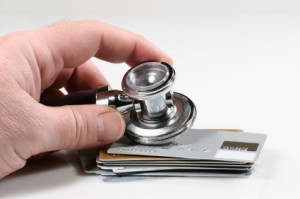 Today’s top story: How new grads can handle 3 essential post-college questions. Also in the news: A new episode of the SmartMoney podcast on money goals and bank bonuses, the possibility of another stimulus check, and everything that goes away when coronavirus benefits end in July.
Today’s top story: How new grads can handle 3 essential post-college questions. Also in the news: A new episode of the SmartMoney podcast on money goals and bank bonuses, the possibility of another stimulus check, and everything that goes away when coronavirus benefits end in July.
How New Grads Can Handle 3 Essential Post-College Questions
The real world is a bit different these days.
SmartMoney Podcast: Setting Money Goals at Milestone Birthdays, and Bagging Big Bucks with Bank Bonuses
Use your big birthday to set a new goal.
Is Another Stimulus Check Coming?
Maybe.
Here is everything that goes away when coronavirus benefits end in July
Start planning ahead for changes.
 Today’s top story: 5 questions to ask before canceling your travel credit card. Also in the news: Think it’s bad now? Wait until hurricane and fire seasons start, 8 types of credit card relief you can ask for, and tomorrow is the deadline to receive your Coronavirus payment by direct deposit.
Today’s top story: 5 questions to ask before canceling your travel credit card. Also in the news: Think it’s bad now? Wait until hurricane and fire seasons start, 8 types of credit card relief you can ask for, and tomorrow is the deadline to receive your Coronavirus payment by direct deposit. Today’s top story: For self-employed, filing for unemployment benefits is getting easier. Also in the news: How to pay rent when you can’t afford it, what to keep in mind with credit card payments during the pandemic, and how to find out what you owe the IRS.
Today’s top story: For self-employed, filing for unemployment benefits is getting easier. Also in the news: How to pay rent when you can’t afford it, what to keep in mind with credit card payments during the pandemic, and how to find out what you owe the IRS. Today’s top story: What to do if you can’t pay for insurance due to Coronavirus. Also in the news: 3 effective ways to get airlines and hotels to bend their rules, a new episode of the SmartMoney podcast on spring cleaning your finances, and what the CARES Act means for public service student loan forgiveness.
Today’s top story: What to do if you can’t pay for insurance due to Coronavirus. Also in the news: 3 effective ways to get airlines and hotels to bend their rules, a new episode of the SmartMoney podcast on spring cleaning your finances, and what the CARES Act means for public service student loan forgiveness.